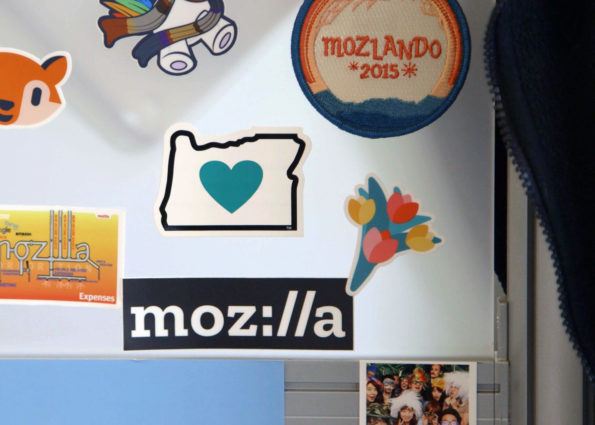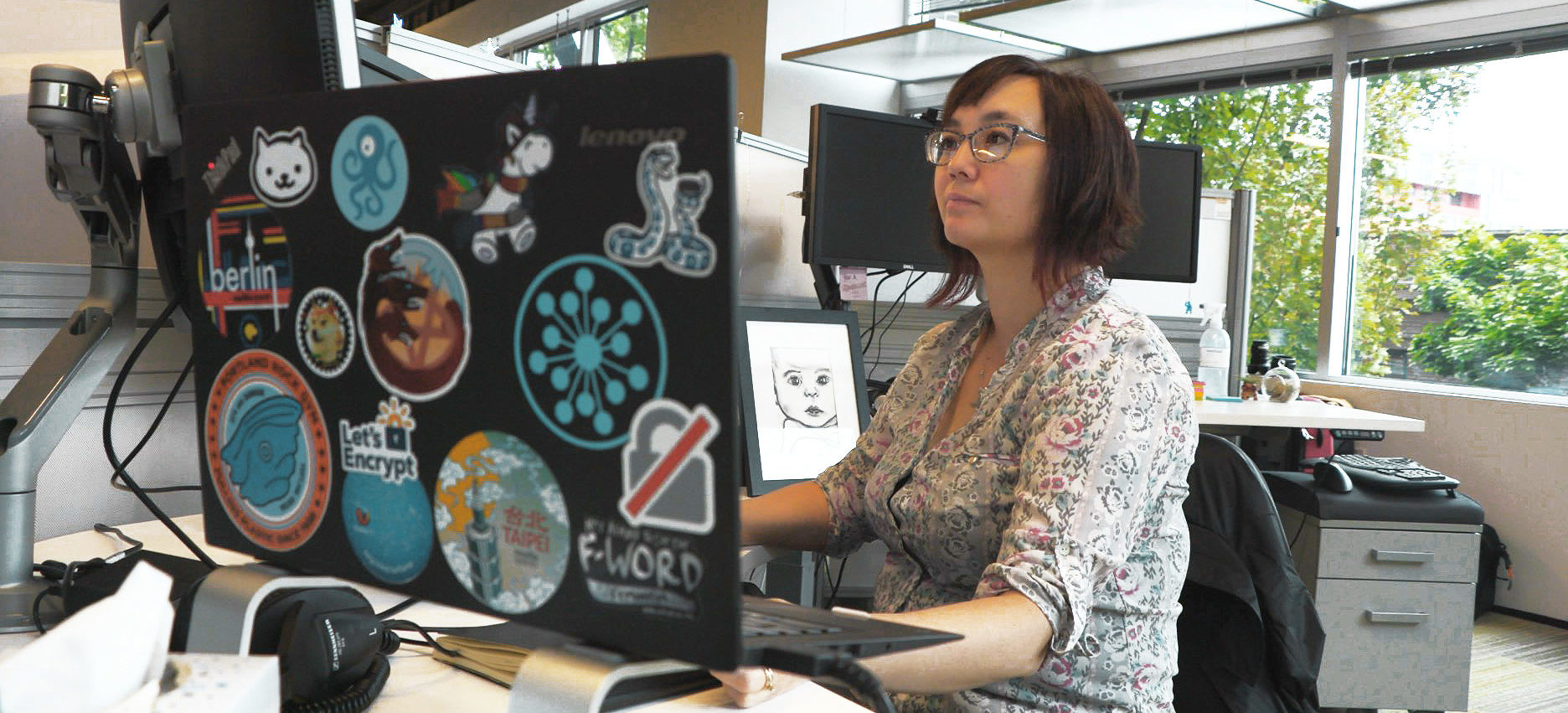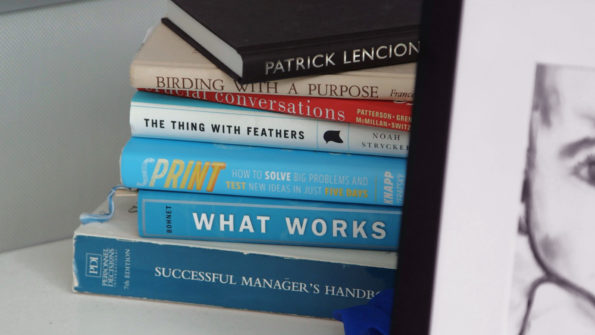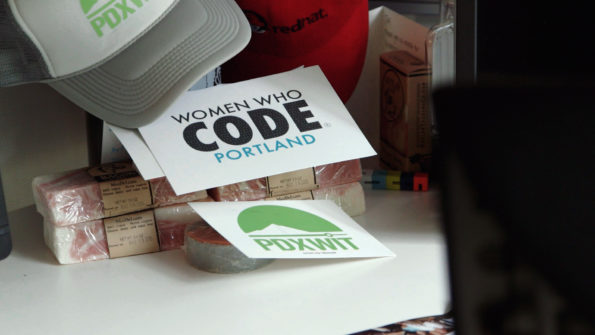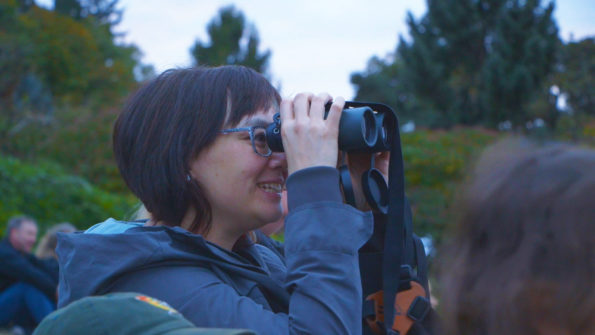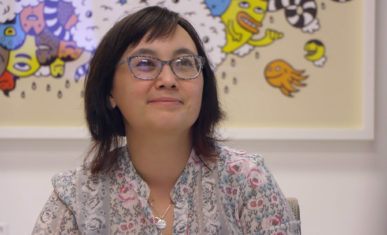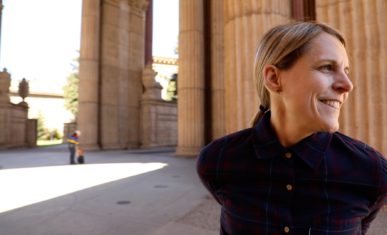A hacker in the making
Deckelmann didn’t set out to have an impact in technology. At the University of Oregon, she declared chemistry as her major, “a cover” for her secret, would-be future as a violinist. Like many students, she also held a part-time job. Hers happened to be at a Dunkin Donuts shop, to the consternation of a housemate who got tired of smelling donuts every day. He suggested she check out an opening at the university computing center where he worked. The job was a turning point. She took to the work, helping people with software installations, virus attacks and hardware failures. Along the way, the college open source community welcomed her into the fold. She eventually built her own computer and worked her way up to being a systems programmer for one of the university staff developers.
“I had this idea that I was going to be a Linux Kernel hacker,” she said with a smile. “That was my life goal at the time.”
Switching majors to computer science was the next logical step, and initially she didn’t notice how few women were in the CS department compared to chemistry.
“I had the experience in college of going to a conference for system administrators and having a woman run up to me and say ‘I haven’t seen any other women here. You’re the first woman I’ve ever seen.’ It was a really weird moment,” she reflected.
The experience opened her eyes to advocating for more deliberate inclusion, and urging conference organizers to make it clear that women and minorities are not just tolerated, but that they are explicitly wanted at events. A “geek feminist,” she has long been a proponent of anti-harassment policies and codes of conduct for conferences, talks and gatherings as a signal for clear community standards. For five years, she also advised the Ada Initiative, an organization (named after Ada Lovelace, the world’s first computer programmer) that was dedicated to supporting women in open technology and culture.
“Women in our industry are busy. They’re very accomplished, and most of them don’t live in Portland,” she said. “But those of us who do similar work in open source know each other, even if we’re in different places.” Deckelman worked hard to track them down and develop relationships, something she recommends all women in the field do. She tossed out a quick list of women that she counts as inspiration: Anne Herz, Audrey Tang, Laura Thomson and Valerie Aurora, to name a few.
“A huge motivating force for me is being able to work with other women,” she said. “Changing the system is what drives me to take leadership roles. I want more women to want to work in tech, and especially here at Mozilla and on open source. As flawed as open source is, I think it’s better than the alternative.”
